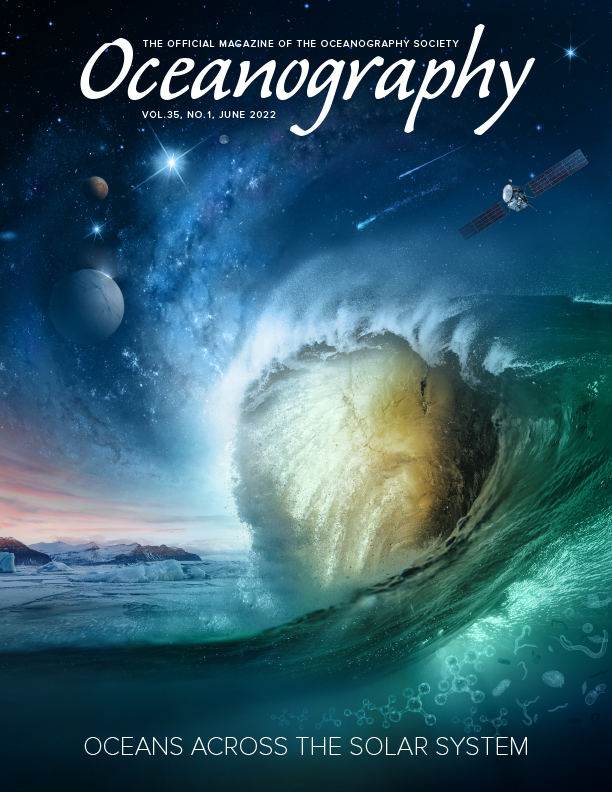Full Text
With this special issue, I am pleased to be able to bring to Oceanography readers something a little different from the usual fare. Instead of focusing on the wonders of Earth’s ocean, articles in this special issue ask you to consider how ocean scientists’ knowledge and skills might apply to studies of ocean worlds beyond our own, such as Jupiter’s moon Europa, Saturn’s moons Enceladus and Titan, and Neptune’s moon Triton.
Articles discuss how ocean system science—a combination of modeling, laboratory experimentation, and observations—can be used to predict what processes may act within ocean worlds. Other articles consider how studying extreme environments on Earth, such as the thick ice at the poles or hydrothermal vents on the seafloor, may provide insights into whether and where life may exist in other ocean worlds. Questions posed are: What constitutes habitability in an ocean world environment? What laboratory and modeling approaches can we use to investigate habitability in ocean worlds that are currently inaccessible?
The panoply of sophisticated robotic platforms, samplers, and sensors used to explore Earth’s deep ocean and ice sheets are valuable testing grounds for technologies that might be useful to our planetary science colleagues. The complex expeditions that deploy ocean instruments, while still expensive, come at a far lower cost, and are completed in far less time, than investigations conducted in extraterrestrial ocean worlds. Some of the satellite and other airborne sensors refined over decades to gather a wide variety of data concerning our ocean may be used on upcoming missions to ocean worlds.
Ocean scientists have made great progress in understanding the complex and interconnected geological, chemical, biological, and physical processes that act in Earth’s ocean by working collaboratively across disciplinary boundaries. Close partnerships among ocean, Earth, cryosphere, and other geoscientists and with our planetary science colleagues will no doubt provide additional insights into the workings of Earth’s ocean—as well as those of oceans across our solar system.

